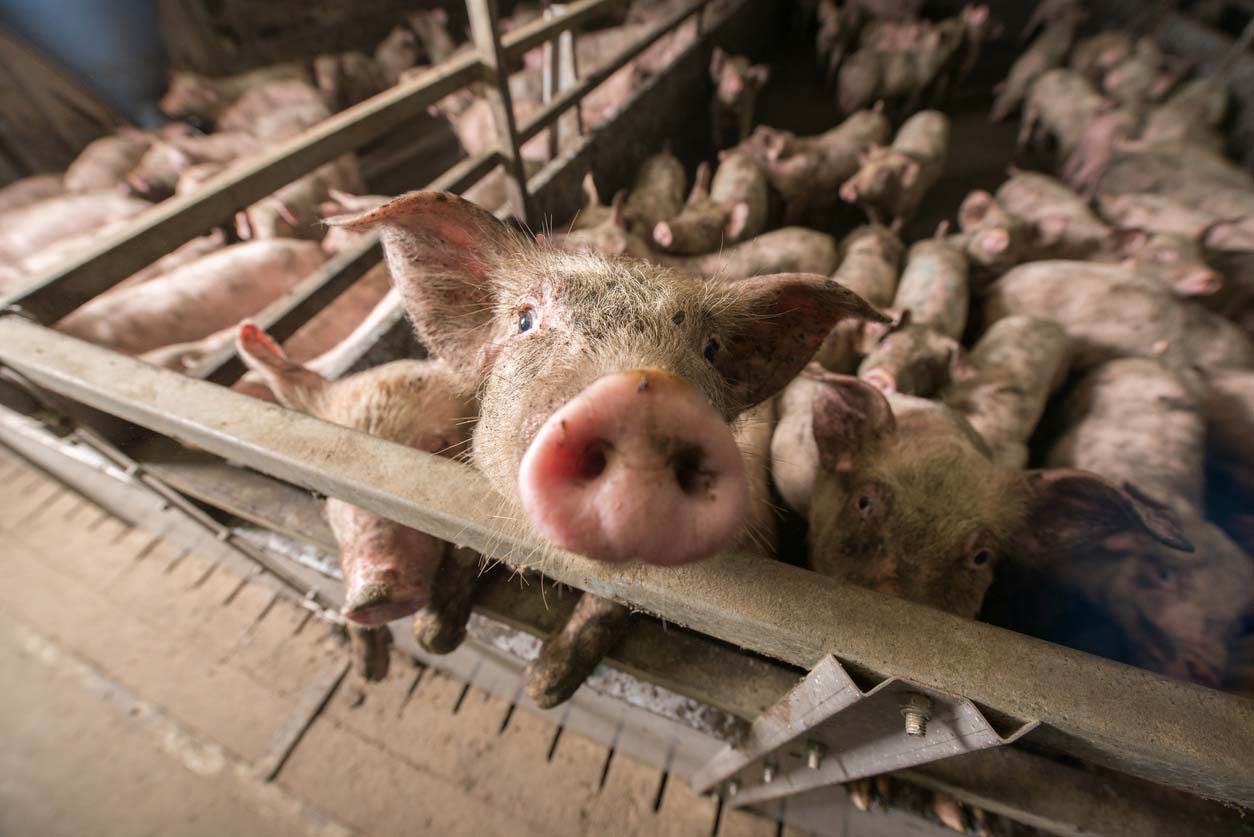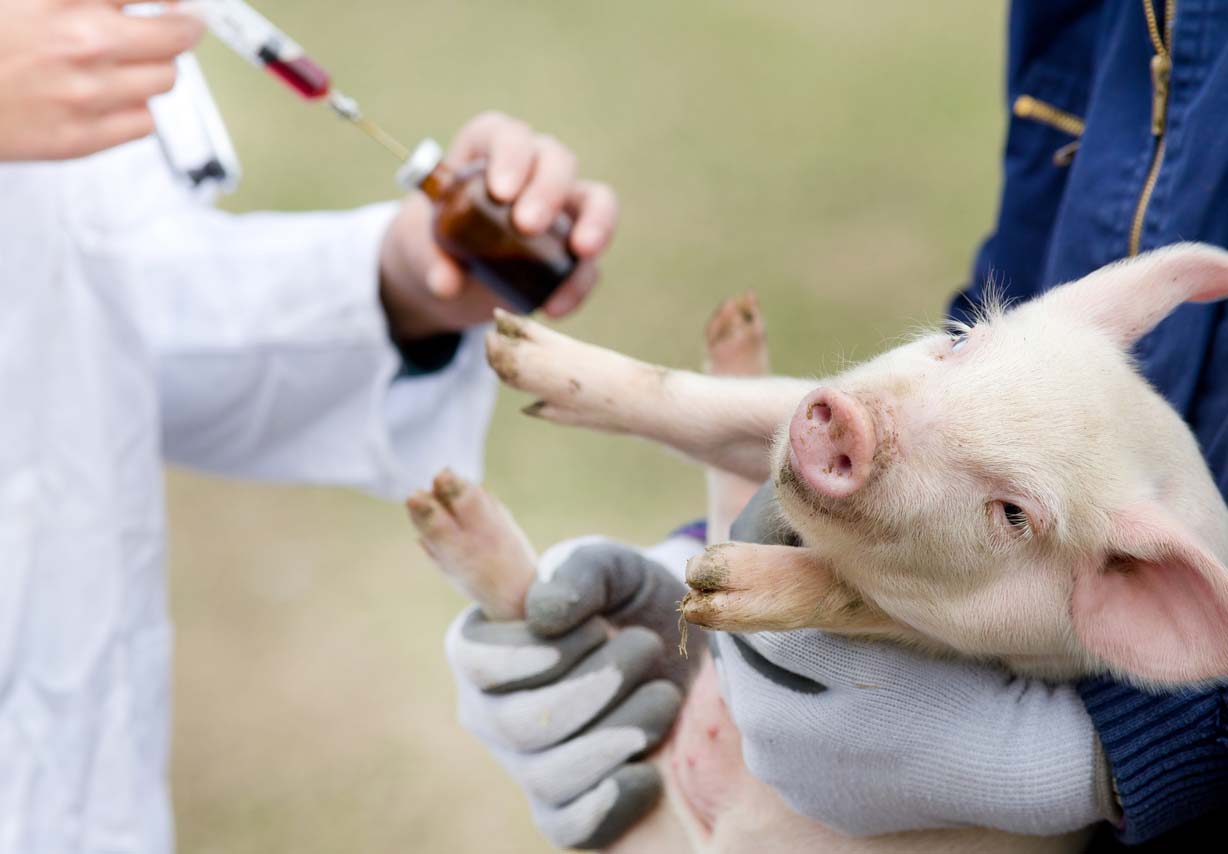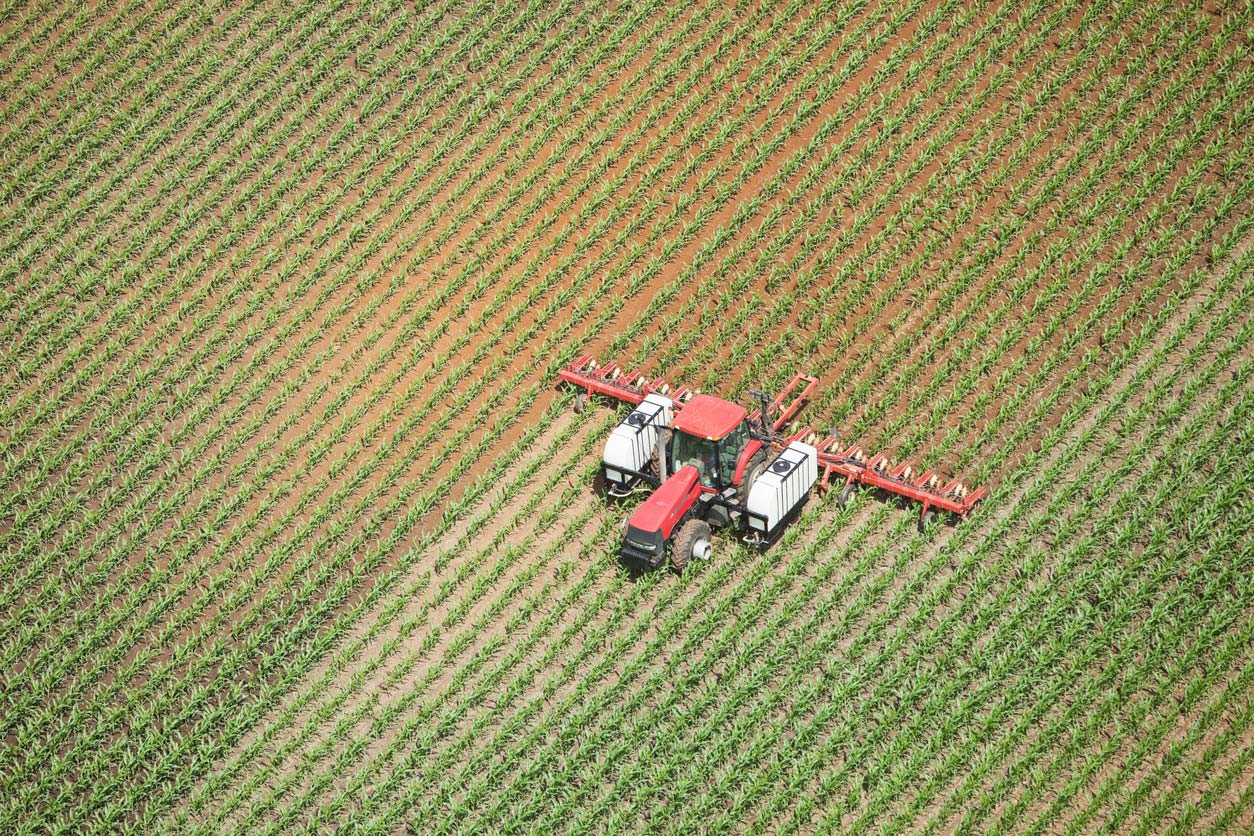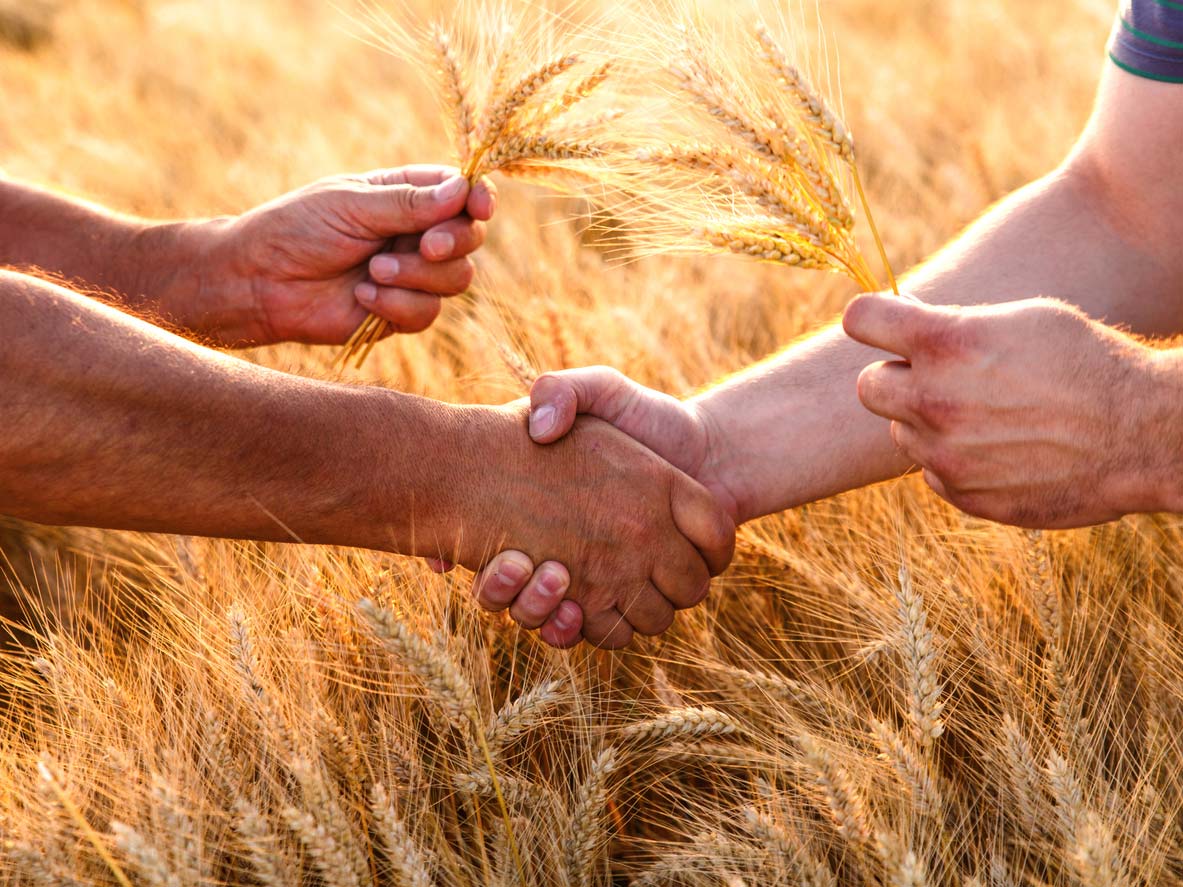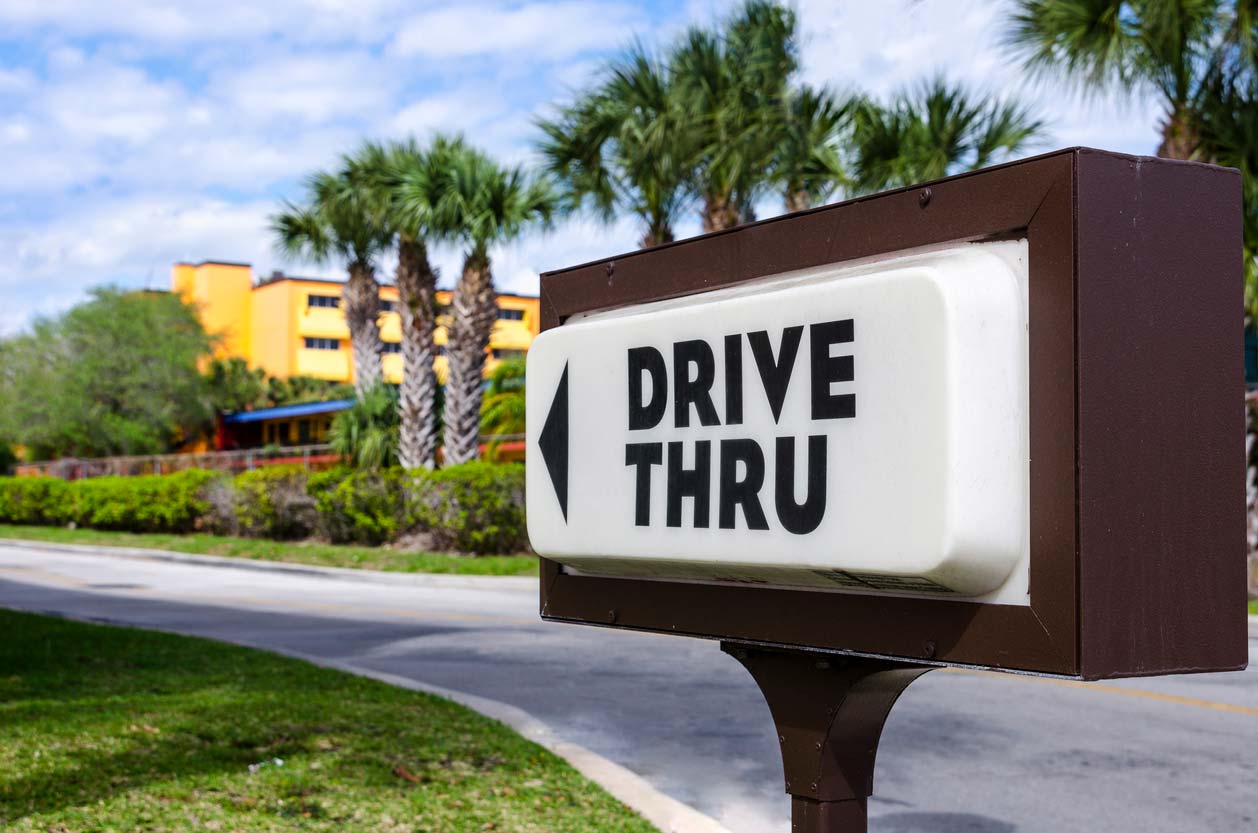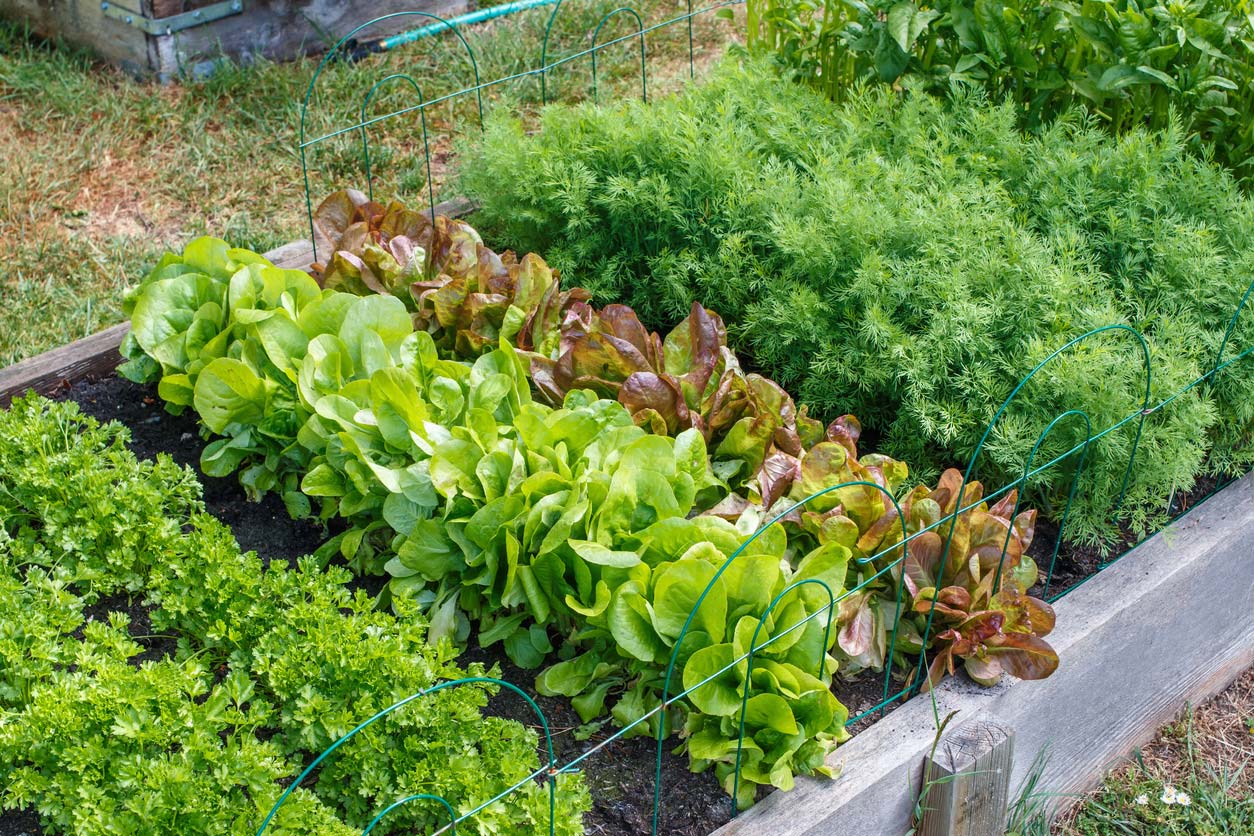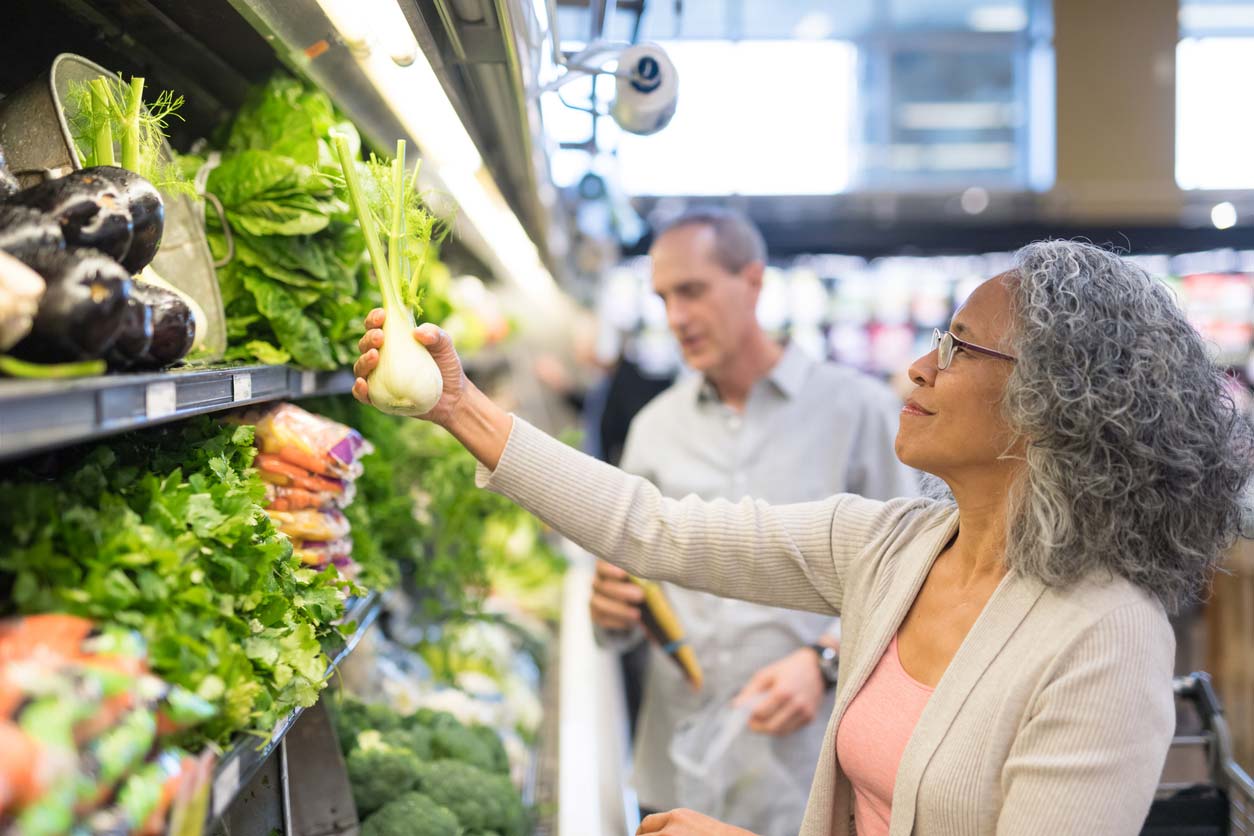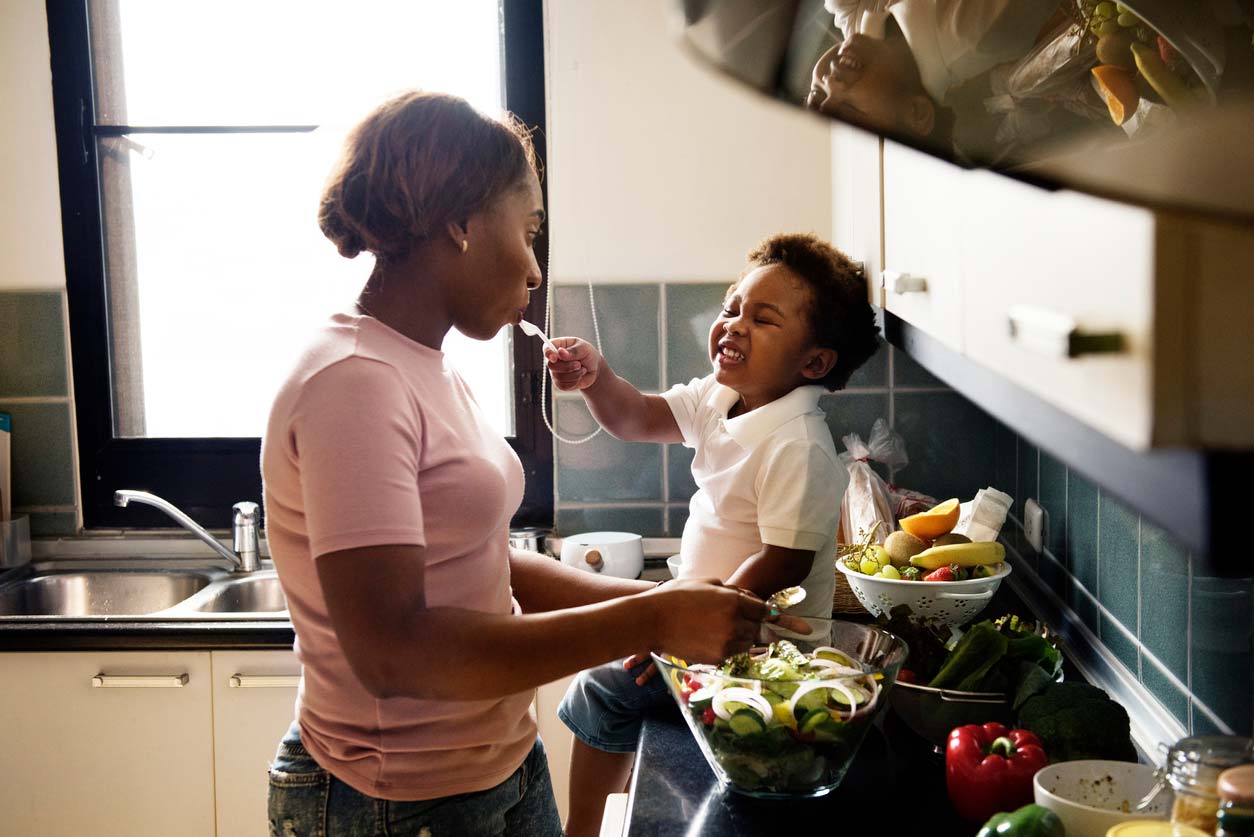This interview with Cory Booker was conducted by John Robbins on July 6, 2020.
https://www.youtube.com/watch?v=eMbll6Uencs
Below is the edited transcript of the video above:
Ocean Robbins: Welcome to Food Revolution Conversations where we explore healthy, ethical, and sustainable food for all.
This is Ocean Robbins, and I am here now with my dad and colleague, John Robbins, to welcome and introduce Senator Cory Booker. Senator Booker represents the state of New Jersey in the United States Senate. He’s the former mayor of Newark, New Jersey. He’s a Rhodes scholar, and he is a dedicated advocate for healthier lunches and better nutritional education in schools, for community gardens and farmers markets, and for increasing access to healthy food in low-income communities.
Senator Booker is the coauthor of legislation that could lead to the elimination of factory farms in the United States. And we are here today to talk about this moment in history, about the state of our world, and about what might be a path forward. And now for this interview, I’m going to hand it over to my dad and colleague, John Robbins.
Influencing the Influential
John Robbins: Thank you Senator Booker for being with us.
Senator Cory Booker: I am thrilled to be with you. You are really one of the more influential people in my life. When I was just in my early twenties, I read your book [Diet for a New America]. And it forever changed me. I just can’t tell you how much of an influence you’ve been on my thinking and really waking me up to a lot of things I just did not know — never questioned, never really thought about — about food systems. So you planted seeds that have reaped a tremendous harvest in my life of activism and my work in the Senate. So it’s such an honor.
Your son [Ocean Robbins] has become a dear friend as well. And I just love you both and am grateful for you. So when he asked me to be on with you, I’m like, “Heck yeah.” So it’s good to be here with you today.
John Robbins: Well, thank you. It’s a privilege to be with you. And I love your work. I love what you stand for. I love how you express the ways that you bring people together, the way you form connections with people.
Right now, we’re in a time when things are so polarized. The conversations seem to be splitting us apart in so many ways. And you’re a voice again and again that brings us together and unites us and finds common ground that we can build on to face the issues and the problems we’re really facing.
The Farm System Reform Act
John Robbins: And I want to start by asking you about the Farm System Reform Act that you have written. And now, there are quite a few co-sponsors. What’s the status of that? Why did you write it? What do you hope to accomplish with it?
Senator Cory Booker: In 2016-2017, I went out to the Midwest and met with farmers, including Republican farmers, and just started learning from them and their own experiences about how broken our food systems are and how it entangles all of us — from the end consumers and communities like mine to our producers. And I just saw the tragic realities of farmers who saw their share of the consumer dollar drop precipitously, just about 50% in the last handful of years alone. Where this massive corporate concentration is going on in our food systems that are driving so many farmers out of business; that are engaging in practices that are bad for our ecology, bad for animals, bad for our health and well-being, and are driving workers and farmers out of business on so many levels right there in our food system — this perpetuation of a lot of injustices.
And so, I wanted to write a bill in partnership with a lot of these farmers and some of the organizations, like the Farmers Union, that would really get to the bottom in addressing a lot of that. So the Farm System Restoration Act, it does a lot of things. It puts a moratorium on these concentrated animal feeding operations, or CAFOs, which are so destructive to our environment, so grievous in what they’re doing to rivers and streams and groundwater.
The Problem With CAFOs
Senator Cory Booker: I had a Republican farmer in the Midwest say to me that he used to be able to fish from his creek and drink from his well — the land that his family has been on since the 1800s. And since the CAFO moved in, they can’t do either.
It also allows for people to hold those big corporate integrators — that have these vertically integrated monopolies — and hold them accountable for the harm that their CAFOs are causing to communities and neighborhoods.
And I’ll take you down to Duplin County, North Carolina, which was the first time I watched one of these massive pig CAFOs and the huge lagoon of pig waste. And I watched it sprayed on spray fields. And then watched the spray mist off into surrounding areas, met with the residents, and heard their horrific stories of respiratory problems, not being able to open their windows, run their air conditioning, put their clothing out on the line, property values going down. And these were low-income, minority communities.
And then, to help those folks. Because I realized that the contract farmers that are working like sharecroppers for the big, massive multinational monopolistic corporations, they have horrible, horrible realities in their lives as well. And so, we help them in this bill by putting about $100 billion into voluntary buyout programs for these contract farmers who want to transition away from this perversion of agriculture, away from these CAFOs, and get into some more sustainable practices that speak more to our heritage.
Intersectional Food Justice
Senator Cory Booker: And then, I want to go right at this massive corporate consolidation that frankly is hurting our country in so many different sectors. But dear God, it’s making such a painful impact on farming. And it really prohibits the USDA from doing all these tricks that really make them a wholly-owned subsidiary of these multinational corporations.
And so, this bill was helped by a lot of farmers — and hailed by a lot of farmer organizations.
But what’s beautiful about this, and I know you will appreciate it, is that it is this incredible intersection of those of us who are really about animal welfare. So there you see those activists involved. You see farmers involved. You see ecologists involved. It’s created this sweet spot where there’s so many overlapping intersectional yearnings for justice in our country. And I really am excited about the prospects.
This is going to be a long process of awakening consciousness in our country. And that’s why, again, I love who you are and what you do. Because we know from the civil rights movement to the workers’ rights movement to the suffrage movement, what always preceded legislation is this country was becoming more aware of the injustices that are out there. And as consciousness grew, it helped us to change things. Remember The Jungle with Upton Sinclair exposing a lot of the horrors that were going on in the meatpacking industry helped us to make reforms, even though we’re slipping back to those days.
And so, I just know that our success is going to be based upon how well we can expand the consciousness of our country about the injustices going on in our food systems.
Factory Farms and the Next Pandemic
John Robbins: One of the things that’s always bothered me about factory farms, CAFOs, is that they depend on concentrating animals in stocking densities that are really egregious. They’re appalling from an animal welfare point of view. If you wanted, diabolically, for some reason, to design a system that would breed resistant bacteria, bacteria that are resistant to our antibiotics, I don’t think you could find a more effective way of doing it.
Eighty percent of the antibiotics that are used in the United States for all purposes aren’t used as medicines to treat bacterial infections in human beings, which is their rightful use. They’re used as feed additives in factory farms and CAFOs just to keep the animals alive and gaining weight under the filthy and appalling conditions that have become normalized in these places.
And so, I think that your bill could help save our antibiotics as medicines to help cure people from bacterial infections. And if we don’t do something about this problem, we will lose our antibiotics. We will enter a post-microbial era, and then the next pandemic and the one after that are inevitable.
Senator Cory Booker: Well, look, I saw an opportunity amidst this COVID crisis to address global wet markets and the awful things that go on there. And I got Republicans to join me when they’re talking about other countries. But I quickly make the point to people that if you look right here at home, we are doing the same kind of practices that could cause global health disasters. And so, you pointed out, it’s not just us, but a lot of other countries are taking on these practices where they’re prophylactically or preemptively using the majority of our antibiotics.
And these superbugs will happen from these environments. It’s not a matter of if. These superbugs will happen. And we will see Americans dying from very common colds or ailments that are just because of the antibiotic resistance. So it is a massive public health crisis waiting to happen if people don’t heed the warnings of health experts and prescient people like yourself.
Bringing Change to Washington
John Robbins: Well, if our listeners agree with you, and with me, that it’s time now to end Big Ag’s harmful factory farms once and for all, is there a way that our listeners could add their names to become, maybe, citizen co-sponsors of your bill? To maybe encourage the Senate to take it up for a vote or to encourage their senators to become co-sponsors of it?
Senator Cory Booker: What I will do, eventually, will be to petition. And in the meanwhile, I want to let folks know that there’s an old saying, “Change doesn’t come from Washington; it comes to Washington.” It really is the activism and engagement of people that bring about the change. And often it happens from tragedy, whether it’s women throwing themselves out windows at the Shirtwaist Factory fire, or four girls dying in a bombing in Birmingham, or even the momentum we now have around policing reform because of the horrible murder of George Floyd.
But the thing that you and I both know is that there are silent horrors going on that these companies try to hide from public view or pass things like ag-gag laws to prevent our knowledge. And we have to be activists to expose what most of us, in our common conscience, would find unacceptable.
Silence is complicity. Find ways to demand change. Find out where your legislator, house member, or senators stand on this issue because we really need your activism now more than ever — and your social media platforms. – US Senator Cory Booker
So the challenge I give in response to your question is don’t be silent. Silence is complicity. Find ways to demand change. Find out where your legislator, house member, or senators stand on this issue because we really need your activism now more than ever — and your social media platforms. Please educate people. There are books written about this. This is information, frankly, you’ve been talking about for decades. It’s out there in articles. There are mainstream newspapers now that are starting to really speak to this crisis. And so, I just ask people to be activists.
Challenges in Correcting Injustices
Senator Cory Booker: And remember, so many things are impacted, including economic justice, animal treatment, health and well-being of humans, support for farmers as our original entrepreneurs. There are racial justice components and economic and climate change and climate justice issues in this.
This is one of those points that if you said, “Hey, I don’t have that many areas because I’m busy working my job, raising my kids.” Well, Archimedes said, “Give me the right lever, I can change the world.” This is one of those real leverage points — to look at our food systems and to take steps to correct this injustice. And I feel really blessed to be one of the voices in Congress. It was lonely calling this out.
In fact, I’ll tell you a funny story. I was talking with a well-known senator. And I’m on the Environment and Public Works Committee. And I just got to the Senate and was telling them that “You know, when it comes to climate change, the animal agricultural sector produces about as much damage as the overall transportation sector.” And I still remember they were like “Shh.” Talk about an inconvenient truth. They didn’t want that. And I found that a shocking kind of response.
A Broken Food System
Senator Cory Booker: I’m happy to say from that first moment in the Senate, now more people are willing to stand up and say this. But I tell you, there is a powerful lobby. From Big Oil to Big Pharma, these are formal lobbies. But Big Ag — I am telling you right now — has such a hold.
Think about this for a second, that about 90% of our ag subsidies, the things that you and I as taxpayers pay into, go to four monocrops. A significant amount of that goes to feeding livestock — the billions of animals that we slaughter every year. And then, the rest of it often goes to things that make us sicker. Corn syrup… It’s why my kids here in Newark at the local bodega can buy a Twinkie product cheaper than an apple. Because we have created food subsidies that further subsidize animal agriculture, as well as, unfortunately, the things that often give us diabetes, and heart disease, and more.
We have such a savagely broken food system. But these powerful interests protect it. And it’s not for the small, independent family farmers, this is for these big multinational corporations who get billions of dollars because of our subsidies. And they fiercely protect these broken systems that make us sicker, that are often hurting animals, that are driving climate change, are tearing down rainforests, and more.
Working Together with Farmers
Senator Cory Booker: My girlfriend, Rosario, just did a great film about soil erosion, called The Need to Grow, which further talked about these farming practices that are being done by these massive, integrated, multinational corporations that are just destroying our climate and our ecology. And one thing that Rosario’s film was talking about is the idea of pitting farmers against activists like us.
The reality is, there’s this common space. I believe we should be paying farmers, as my bill gives billions of dollars to get farmers out of these traps. But also paying farmers to do things like cover crops, crop diversity, and all the things that would make us healthier, and also help us to meet the challenges of climate change.
So I’m hopeful that we are on the beginnings of a larger movement and consciousness, and especially that’s going to help to localize food systems even more. And I’m asking everyone to double down on their activism. Use your social media platforms. Use your voice. Use your engagement to start waking people up. Because when you tell people the truth, I always say, “You get folk woke.” They realize that this is wrong. And you get more people involved in this movement. And we will hit a tipping point.
John Robbins: It seems to me that you’re bringing together animal rights activists who tend to believe, some of them anyway, that it’s wrong or unethical to use animals for food, with farmers who make their living using animals, breeding animals, raising animals for food. And you formed a coalition because both sides have an investment in a food system that actually works for people and the environment — and for the animals.
A Path Forward for All
John Robbins: There’s something about the way Big Ag has taken over meat production that has pushed small farmers into situations that are a living hell for them. There’s no way out for them. I see your bill as potentially being a path forward for them so that they can actually do what they wanted to do, which is to grow food for people to eat in ways that are healthy for the environment and for the people who eat that food. And don’t depend on egregious animal suffering, don’t depend on polluting the environment atrociously, don’t depend on going into debt all the time. And I really want to applaud you, that’s a remarkable achievement.
Senator Cory Booker: Well, I don’t know if you’ve heard about this, but I ran for president last year. And I had these cynical folks saying to me, “You’re going to get killed in the Midwest when you’re going through Iowa. What is some vegan guy…” First of all, I would stand in front of Iowa farmers and get huge rounds of applause because I was connecting to them on issues that they are passionate about. They know, forgive my language, they’re getting screwed by these massive multinational corporations. Many of them have been on the land since the original land grants that were given generations ago. Immigrants that came from Europe that got a plot of land that’s been in their families for so long. But now, they’re being muscled off of it because of these massive corporate consolidations.
And we have got to create these unexpected coalitions in our country if we’re going to have the strength to get these things done.
King said, “We’re all caught in an inescapable network of mutuality, tied in a common garment of destiny. Injustice anywhere is a threat to justice everywhere.” The injustice faced by our farmers to people that live in inner cities, it’s all interrelated. And we need each other.
Pathways for Redemption
Senator Cory Booker: You can’t lead the people if you don’t love the people. And what my heroes, from Ella Baker to Don B. King, have shown is that, even those with the people that hated them, they still never stopped seeing their humanity.
John Lewis, who was one of my great living heroes, told me about how he was beaten on the Edmund Pettus bridge. He shared how he was nonviolent and never stopped extending love, even to people who hated him. And years later, one of the men who beat him came to Congressman Lewis’ office, I think with his child or grandchild and asked for John’s forgiveness.
We need to give pathways for redemption to each other — extend grace to each other. And often, and I still remember a story. One of my friends who had a mostly vegan restaurant told me once that he had some dish that had a little bit of cream in it. And he had people break in and spray paint all this angry stuff, including saying, “There’s a butcher shop down the road.” He got the wrath of people from within our own movement.
We need to imagine a way for everybody to have a pathway out to economic well-being and dignity and security for their families. – US Senator Cory Booker
And I just hope we can all understand that we’re all evolving. There’s an urgency in addressing these issues. But even people that we might perceive as on the “wrong side of this,” we need, as you said, to find that common ground to begin to find solid ground to start to build upon and make progress upon.
And I think that that’s why the love we have for each other, the compassion to understand that this contract farmer who has this massive CFAO on their land, that they’re trapped in a broken system too. And we need to imagine a way for everybody to have a pathway out to economic well-being and dignity and security for their families.
Addressing Social Disparities with Policy
John Robbins: Right now, we’re in a racial moment where the ugliness of systemic racism is becoming more visible to everybody.
Senator Cory Booker: There is wretchedness and pain and hurt in this country. There are scars and wounds that have not been healed. We call ourselves the land of the free, but we’re only four percent of the globe’s population and one out of every four incarcerated people. We see horrible disparities in educational opportunities, environmental injustice… The number one indicator of whether you live near a Superfund site or drink dirty water, or breathe dirty air is going to be the color of your skin.
But despite all of that, I still have hope because I know what the reservoirs of love and the possibilities that exist within the human heart and the human soul. If we can become aware, if we’re willing to take time to open ourselves to other struggles and expand that circle of empathy I talked about before, that, ultimately, should lead into action.
And so I, as a mayor of a majority Black city here, I was so distraught by the broken food system that I created New Jersey’s ever first food policy position in City Hall. And I started really learning more about why a McDonald’s Happy Meal is a dollar or something like that because of what our society has done to subsidize illness and horrific treatment of animals. And all that goes into the billions of animals that are killed, it’s just directly connected to the disproportionate rates of disease in our communities.
Confronting Injustices
Senator Cory Booker: As a great guy named Ron Finley… Please watch his TED talk. You know him, the Guerilla Gardener in South Central. He says, “In South Central, we have drive-bys and drive-thrus. But the drive-thrus are killing more people than the drive-bys.” Because we have these systems that are disproportionately impacting communities like mine that have food deserts. But they also have fast food restaurants, where you can get a happy meal for a dollar, which will ultimately affect a child’s performance in school. It creates a stratospheric rise in obesity rates in our communities and it erodes the potential of our children.
So this compounding injustice of us having cities like mine, that by design were pockets of poverty, where housing discrimination, where environmental toxins were loaded into our city. Our city of Newark has a county incinerator. It has the highways cutting through the inner city. Children in Newark grow up with environmental toxins, food deserts, and a corrupt criminal justice system.
Look, I went to Stanford and Yale and saw more marijuana being smoked there than in inner-city communities. Black and white Americans use and sell pot at the same rate. But you’re four times more likely to be arrested for those things if you live in an inner-city community.
And for people who think that “Hey, we’re a nation that’s legalized.” Stop. In 2017, there were more marijuana arrests in America than all the violent crime arrests combined.
And so, you just start compounding these injustices concentrated in areas where Black and brown people live: environmental injustice, criminal injustice, economic injustice, all these things.
We’re All Connected
Senator Cory Booker: I want everybody to be disturbed by that. I want us all to not be comfortable with a society where the color of your skin still determines the challenges, the pain, the hurt, the threats that you face. I don’t want another generation of adults in this country teaching children, as my parents taught me, that you need to protect yourself. You need to be on guard because people are going to fear you. People are going to surveil you and search for you. Where you can get killed for a misunderstanding.
And so, this is why, again, I have a lot of love for you, my friend. Because you help us to understand the intersectionality of all of these issues and that we’re not that different. And that the plight of a white farmer in the Midwest is directly tied to the plight of a child in an inner-city community. And that by attacking these unjust systems, we could heal this country and help to heal the divisions and heal the rifts, and we all will elevate as a result.
John Robbins: Oh, that’s beautiful, Cory. And thank you for that.
Victory Gardens
John Robbins: You mentioned Ron Finley. And I know him and have interviewed him several times for our summits, which you’ve also been a part of. He’s a beautiful man, and he’s very artistic. He’s very creative. And he’s growing gardens in the inner cities.
And I keep thinking about how during World War II, Americans planted home gardens. They were called victory gardens then. And these gardens produced 40% of all the fresh produce that was eaten in the country. It was produced in these home vegetable gardens, community gardens. And I keep thinking, we could do something like that now. And if we had sufficient government support…
Senator Cory Booker: Yeah. I just want to say that you’re 1000% correct. When I was the mayor of Newark, we decided to do that. We turned city blocks into farms, creating all of this agriculture and localizing food systems — to use our Big Ag subsidies to support local communities doing this stuff. This is not a matter of us not having the resources. We have it.
And I’m proud… I don’t know if I told you this as a friend of mine. I’m so excited that Rosario’s moving from Los Angeles to Newark with me. And the first thing she said to me is, “Let’s build a greenhouse. Let’s create our own garden. You’ve got to start living as thoroughly consistent as possible, Cory.”
And when she said that, it touched me. Because my grandma was born the year before women got the right to vote in America, in 1919. And she told me these proud stories about her victory gardens, about her rationing during World War II, and about how this country used to have this ethic.
Growing Food as Empowerment
Senator Cory Booker: Today many of us view our freedoms differently than my grandmother’s generation. Back then, we felt like we had a responsibility to each other. And that was how we created a freedom from fear, a freedom from want, a freedom from the Nazis, is when we found ways to work together. And my grandmother, a Black woman, bragged about how she helped to beat the Nazis. And she was a part of a movement.
And so this idea of thinking local, it’s not just a slogan. It is really a way of being. And if we can start to reimagine our food systems and localize them, we’re going to empower farmers and restaurants and the flourishing of our health.
So, you thrill me when you talk about Ron’s philosophy. And I hope the next time we have a conversation like this, Rosario will be sitting next to me, and she’ll be telling you about my experience growing food here at my house — my victory garden.
John Robbins: I look forward to that very much.
Decreasing Food Insecurity
John Robbins: Cory, I want to bring up one other topic. It’s a painful one, but I know you don’t shy away from pain. It’s often a place where we can meet together. If we have empathy for one another, we can understand each other’s pain. We can identify to some degree with it and do something about it, finally.
Right now, there are 50 million Americans who are dependent on food banks. And for people who are in this situation, just getting enough calories to survive can be difficult. It can be arduous. It can be perilous.
And I’m of the belief, and I know you are too, that in a nation as wealthy as ours is, this is a crime against humanity. This should not be.
Cory, what do you think we could do as a society to decrease food insecurity, so that the poorest people, the poorest among us, would not have to fear starvation and malnutrition so that we could have healthy, ethical, and sustainable food available and affordable to all?
Senator Cory Booker: It is an American shame that we have so much food insecurity in the wealthiest nation in the world. And before I start talking about our food systems again, I just want to talk about the sin of people, who in my community work longer hours than my parents did, but still need to rely on food subsidies, food stamps, food kitchens — just to feed their families. And in order to solve this, we have got to start talking about living wages in this country, and about labor.
Economic Justice
Senator Cory Booker: My friend, Natasha Laurel, works in an IHOP. They barely pay her enough money to live. She still needs housing subsidies; she still needed SNAP benefits. She works in a restaurant where they outsource the costs on society — everything from the subsidizing of the beef that they’re serving in their hamburgers, all the way to us, all of us, subsidizing their labor costs. Because they’re not paying their full-time workers like Natasha enough. She caught extra shifts and still found it impossible to keep up.
We have this awful reality in this country where work does not pay. We’ve used our tax code to shift wealth upwards on so many levels, instead of doing the common sense things like expanding the earned income tax credit, and expanding the child tax credit, that would eviscerate poverty and lift people into food security.
And let’s not forget about the elderly. Seven million seniors live effectively below the poverty line because their social security checks don’t go far enough. Because social security taxes are regressive taxes in the sense that somebody making $40,000 a year, $50,000 a year, $70,000 a year pays a much higher percentage of their income and social security taxes than someone making $4 million a year, or $5 million a year, or $6 million a year. If you just moderately raise the social security tax contributions on the wealthiest Americans, you could take those seven million seniors out of food insecurity. I remember like it was yesterday talking to an Iowa senior who was telling me that they rationed their insulin because they couldn’t afford it. And seniors are living in this kind of economic insecurity because of prescription drug costs that are out of control, or because their safety net does not go far enough.
So it’s important to have a conversation about economic justice. And when we’re talking about corporate consolidation in the ag industry, this corporate consolidation is hurting us in so many industries.
Wages and Inflation
Senator Cory Booker: Remember, the minimum wage, when it was put into place, was above the poverty line. But it is not above the poverty line anymore. It has never kept up with inflation. In my dad’s generation, wages paid more than today. And New York Times magazine did an article comparing a janitor that worked for Kodak — that old company, back then it was a tech company — versus a janitor that works for Apple. And they compared their life experiences.
Well, the janitor that worked for Kodak actually worked for the company. And she got a tuition assistance program. So she went to school at night. She worked hard. It was the American dream. She worked hard; got the reward; and got her degree. She moved up in the company from a janitor to mid-level management. It was a great American story.
Well, the janitor that worked for Apple doesn’t really work for Apple. They work for an outsourced company that wins that bid with Apple by suppressing wages and driving down the income. So now, suddenly, that person is doing the same work that the Kodak janitor did. But now, instead of going to school at night to try to get a step up, they’re actually working a double shift and a triple shift.
And then, we blame them when they’re not home to check homework for their kids, or they can’t do a lot of those things that we often think Americans should do. But we don’t realize that so many Americans are working themselves to death in substandard housing because they can’t afford their housing costs. Relying on food banks because they can’t afford food. Needing public benefits just to survive.
We know that families who are teetering on poverty can be brought out of poverty just by having food security in their lives.
So there are a lot of systemic things we need to do on the food side to provide better access to bountiful food in our country through what we do with our subsidies, what we do with SNAP… But this economic injustice in our country — where I watched people who work longer hours than my parents did, but they still keep finding themselves falling behind — this is something we have to address as well.
Finding Hope in a Hopeless Time
John Robbins: We sure do. And I’m afraid it’s going to get worse before it gets better because of the COVID-19 issue — what it’s doing to the economy. And I see dominoes about to fall on a lot of people in a heartbreaking way. Already, there are 14 million American children whose parents are having a hard time feeding them. And the percentage in the Black and brown communities is even higher than it is in the white communities — as often is the case in this country.
A lot of us can feel, I can feel, certainly, overwhelmed. I can feel almost resigned. The scope of the difficulties and the problems can seem insurmountable. The forces behind them can seem so massive. There’s so much momentum behind them. There’s so much vested interest that it can seem intractable.
And yet, when I listen to you, and when I talk with you, I feel that resignation lifting. I can feel something hopeful starting to arise in me. And I love you for that. Because it gives me a sense of aliveness and connection to the problems that is fruitful. It gives me a sense that I can be effective. There are things we can do. We don’t have to accept it the way we’ve normalized it to be.
Senator Cory Booker: Yeah. Look, I learned from people in the city and the community around you, who helped raise me into an adult and the person I am today. As I said earlier, their hope is scarred and calloused. Their hope has been bloodied and battered, but yet they still hope anyway. For them, hope is this indomitable, invincible determination to never let despair have the last word. And that, to me, is what real hope is all about. And we are not powerless. We can’t surrender our power.
A Fortuitous Chain of Events
Senator Cory Booker: There was one white guy on a couch in 1965 watching TV. I know the movie he was watching, it was called Judgment at Nuremberg. It was March 7th, 1965. He was on a couch in New Jersey and watched John Lewis march on the Edmund Pettus bridge. And his first instinct is to go to Alabama as a lawyer — he was a young lawyer — and try to help out. But he realized he couldn’t afford a plane ticket, couldn’t shut his business down, was barely making ends meet. He had a family to support. And the problem with racism in America was so big. But he didn’t allow his inability to do everything, to undermine his determination to do something. And so, he did a little calculation in his head and realized he could afford an hour of pro bono work per week. And he got to work.
Now, I called him up to interview him because he said he helped meet with this incredible group of activists and form a sting operation to help Black families who were getting turned away from housing in white neighborhoods in New Jersey. And he said he got a case file of this family that needed some help. He said he went and fought to help the family. There was literally a physical altercation when the real estate agent refused to give the contract, sicked the dog on the father, and punched the lawyer, and all this violence. But the family ended up moving into that town. And he says to me, “Cory, you know the name on that case file, right?” And the name on the case file of that family he helped was Cary and Carolyn Booker, my parents.
And so, here’s one man on a couch, years before I was born, making a decision to give one hour a week of pro bono work. And here I am sitting before you as a United States Senator.
Setting a Positive Future in Motion
Senator Cory Booker: So we are all more powerful than we realize. And Reinhold Niebuhr wrote a lot about this. You may sometimes not even live to understand or see the ramifications of your decisions. But do not surrender your power. Do not yield or be seduced to despair. Do something right now.
When you wrote Diet for a New America, you might have never guessed that one day a 22-year-old sitting in Oxford was going to pick up the book you wrote, and it would change his life and send him on a lifelong odyssey to join you in the cause that you’ve been talking about for decades. You just never know what helping one family plant a garden might do. There are so many things we can do.
And I tell you this, all of us are our ancestors’ wildest dreams — we are living lives beyond their imagination.
I still remember my grandparents’ reaction when I graduated from Yale Law School — how dangerous it is. I still remember that grandmother from Buxton, taking her to Barack Obama’s inauguration, and the reporter asked her, “Did you ever think you’d live to see this?” And she said, “Nope.”
I believe if we are loyal to the work of racial reconciliation, of economic justice, of justice in our food systems — if we’re loyal to the work, the hard yeoman’s work — then one day we’ll be able to say to our grandchildren, that we never imagined we’d live to see what they’re seeing.
Having Authorship Over Your Food Choices
John Robbins: I recognize everyone’s going to have authorship over their own food choices — and should have that sovereignty. And people will make choices that make sense to them. They want to enjoy their food and should. But we can feed people healthy food and environmentally, sustainably grown food. We don’t have to pollute. We don’t have to destroy the topsoil. We don’t have to use pesticides, and herbicides, and insecticides, and fungicides everywhere. We really could grow food organically. Grow it in a way that respects the earth and respects the people who are involved in it, respects the animals that are involved, if they are.
And I wonder about your food choices. I know you are vegan. You’ve said that. I know you also do respect people’s right to choose and need to make their own food choices. Why do you make the food choices you make? What is in it for you? What is the statement you’re making to yourself, in your own heart, to the world, when you eat and choose the food that you do?
Senator Cory Booker: The most intimate thing we can do is what we put in our bodies, right? And I realized that so much of the impact I have on the world is not by what I say, but what I do. And that thing I do multiple times a day, sometimes too many times a day is choosing what I eat. It’s like I’m voting every moment. I’m supporting systems every moment. Whatever injustices that are there, I’m complicit in those.
And so, I really mean this, that your book sent me on this odyssey. I was stunned when I read through those things. And once you know, you can’t go back to not knowing. I realized that if I was going to live a life in alignment with my own integrity, then I had to stay true to myself. Because to thine own self be true; it’s the most important thing.
Senator Booker’s Food Journey
Senator Cory Booker: And I have to say, I became a vegetarian. I knew I should become a vegan after I read your book. But it took me years, and years, and years. And I remember learning a lot about the egg industry and knowing about the baby chicks being born, and the male chicks being put into a garbage disposal. And one day, I was at a hotel. You know how they have those big trays of eggs. And I was just going through the line. I was sitting down in front of my eggs, and then I knew it. They call it neuro associative conditioning. My brain had shifted. I couldn’t eat that anymore without associating it with things that were so not in accord with my values.
And so, you’re right. I have no judgment. Nothing but love. If people had judged me when I was 15, 18, or judged me when I was 35 and still eating Ben and Jerry’s and ordering pizzas, I just think we should just take care of our own. And also have humility. We all are living in a society where we participate in systems whether we know it or not.
I want to live my life where I’m growing in understanding and allowing that to inform my actions. And one of the most affirming things I’ve done in my life journey has been to learn about the impact of my food choices and make changes. Again, you’ve got to lead with love, and it starts with loving yourself. It’s been a journey for me, man. And I’m not even nearly done in terms of trying to get to a point where I’m living my life with integrity in my personal decisions.
You and I both know of people that preach. I just don’t think that that’s the way we make a difference. The way we make a difference is by living our light and letting it shine. And like a lighthouse, you’re going to affect and guide and help others. But God, I’m a work in progress. And I pray for the strength that enables me to be the change that I want to see in the world — that simple ideal from Gandhi.
John Robbins: It’s a very simple idea, and a very beautiful and powerful one, I think. And you’re living it. A lot of us are as best we can.
Helping People Lead Healthier Lives
John Robbins: My own sense of it is that if you were to say, “What are the odds that in 20 years, half the people in the United States would be vegan?” I would say probably close to zero. That’s just not going to happen. But if you asked, “What are the odds that by that time, half the meals eaten in the country would be plant-based?” I think that might be doable. For me the goal isn’t to convert people to be vegans. For me the goal is to help people live healthier lives, make food choices that are healthier for their bodies, for their immune systems, for their respiratory systems, for their ability to withstand viruses and other types of illness. And also to reduce their risk of chronic diseases, like heart disease, type 2 diabetes, and obesity.
And at the same time, I want to help people to make food choices that are more compassionate to the animals, more sustainable to the environment, and can help to fight climate change. All of these things can be done with our spoons and forks. We don’t have to become militant. We do not have to become abrasive. We can just care for ourselves and each other in ways that you model. And you are so eloquent in speaking for that opportunity that all of us have, every time we make any choice.
Owning Our Thoughts and Food Choices
John Robbins: When we start to own our thoughts and the power of them, own our choices — our food choices and the other ways that we interact with life and engage with life — and try to bring all of those choices into a deeper sense of congruence with our hearts, and our spirits, and our real purpose for being alive, then we join each other. Then we’re together in this. Facing racism, facing a pandemic, facing all the ugliness and problems that haven’t been addressed and need to be addressed in our society. Facing the wealth inequality problems. Facing what’s happening with our hearts open to one another so that we can work together to solve these things.
And I just love you, Cory, for being such a beautiful spokesperson and embodiment of this opportunity that I think we all have.
Ten percent more people being vegan in America is not as powerful as 50% of people making significant reductions in the meat that they consume. – US Senator Cory Booker
Senator Cory Booker: Well, you just called me eloquent, but I’m going to pay that back because the way you put things there is so kind, and gentle, and beautiful, and also practical and pragmatic. I love what you just said about how half of the world is not going to become vegan or half of our nation. But to reduce — that’s a much more viable thing. I mean, I tell people this all the time. Ten percent more people being vegan in America is not as powerful as 50% of people making significant reductions in the meat that they consume.
Final Appreciations
Senator Cory Booker: But the gentility you have towards others, and the love and compassion you have towards others wherever we are in our journey, that’s what we always need to affirm. And that unconditional love of my friends who can’t imagine a 4th of July without a steak — God bless you, love you. And let’s both keep telling our truths and be open to each other’s journey. And I’m not going to be mean, or militant, or any of that stuff.
Again, you are a person of great eloquence. And as I said, you are one of my great life heroes for how you’ve lived and how you’ve taught me from afar. When I finally got a chance to meet you, it’s like… What’s that old warning? Don’t meet your heroes. Well, I met one of my heroes, and he exceeded my adoration that I already had for him. So thank you. I pray that God gives me the chance to do a lot more work with you on this journey because I would love to find ways to help elevate the message that you’ve been consistent on for decades now. I think that you are a great healer, and I’m so grateful for you.
John Robbins: Well, thank you, Cory. And thank you for being with us. Thank you for all the work that you’re doing, that you’ve done for a long time, and that you’ll continue to do. Your star is ascending. Your prominence will grow. And that’s a wonderful thing. It’s a blessing to all of us. So I want to thank you for being with us today. Thank you for your work. Thank you for being who you are in my heart — in our world.
Senator Cory Booker: Thank you. Thank you. I appreciate you brother.
Tell us in the comments
- What do you think of Senator Booker’s vision for ways we can end food deserts, health disparities, extreme poverty, animal cruelty, and environmental destruction?
- How have your food choices impacted those around you?
- Does this interview with Cory Booker inspire you to take any positive actions?

